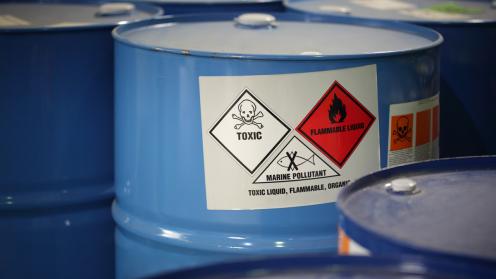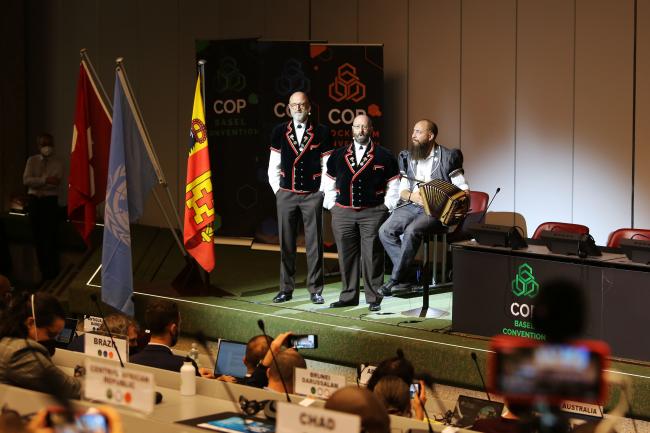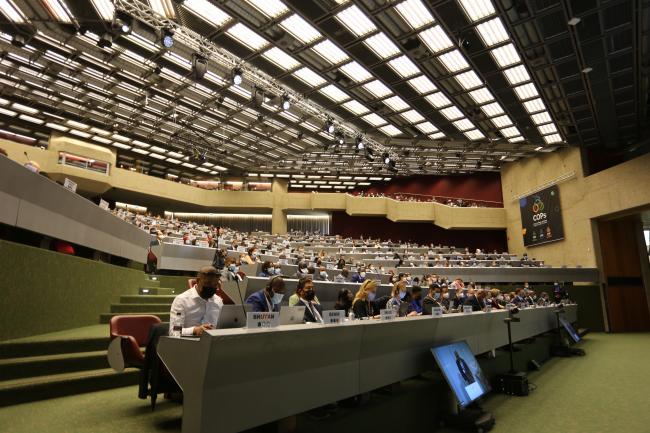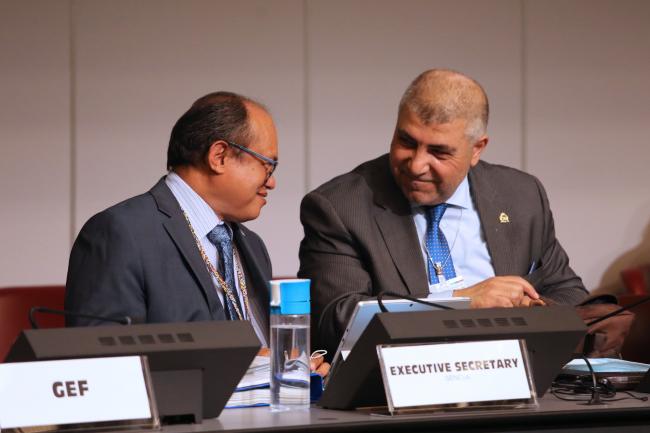The TripleCOP of the Basel, Rotterdam, and Stockholm (BRS) Conventions started with music, and also strong messages relayed from ministers to take robust action to protect human health and the environment from hazardous chemicals and wastes. The meeting started smoothly, with the swift adoption of the agenda and the tricky organization of work for this unique meeting format that engages parties in the work of three Conventions, at times simultaneously.
To dive deeper, read the full Earth Negotiations Bulletin daily report.
Opening statements revealed the importance of the work ahead, and the challenging discussions to come. The planetary boundary for environmental pollution has been exceeded, threatening the stability of life and ecosystems. Plastic waste is increasing rapidly, doubling over the last twenty years, while only 9% is recycled globally. Up to 33% of soils are degraded, and the use of hazardous pesticides can have an adverse effect on all ecosystems, including soil. Hazardous chemicals and wastes can linger in the environment and in people, creating long legacies of pollution that affect health, nature, wildlife, and the climate.
In this context, many mentioned the value of, and the remaining work to come for, the BRS Conventions. The target under the Stockholm Convention to eliminate the use of polychlorinated biphenyls (PCBs) by 2025 and to achieve environmentally sound management of PCB waste by 2028 was raised by many, who expressed concern that efforts are not on track to meet these goals.
The work of the Basel Convention to address the long-standing issue of electronic and electrical (e-waste) occupied much of the afternoon. E-waste is the fastest growing waste stream in the world that can cause health and environmental problems. There are new proposals to consider at this meeting on how to address these complex, globally-mobile wastes. These proposals would make some, or all, e-wastes subject to the Convention’s prior informed consent procedure, which would empower importing countries with information and the right to deny shipments.
Other technical work began quickly. The Basel Convention COP began its discussion of the technical guidelines for several types of wastes. These guidelines help countries manage waste in an environmentally-sound and efficient way and to develop detailed procedures, waste management plans and strategies. Several technical guidelines will be considered at this meeting, including on plastic wastes, lead-acid batteries, and wastes that are contaminated with, or contain, persistent organic pollutants (POPs). POPs are a group of toxic chemicals that persist in the environment, bioaccumulate in food chains, and undergo long-range environmental transport. Work also started to consider listing new POPs in the Stockholm Convention, which could eliminate the production and use of the proposed chemicals.
Side events explored a range of topics. An event on the eighth replenishment of the Global Environment Facility (GEF) brought good news for supporting developing countries: a 30% increase in funding for chemicals and waste management. That said, many worried that support might still fall short of the estimated needs, as other events highlighted POP trends globally, POPs “poisoning” the circular economy, POPs’ prevalence in the Caribbean, and the global programme to clean up PCBs.
To receive free coverage of global environmental events delivered to your inbox, subscribe to the ENB Update newsletter.
All ENB photos are free to use with attribution. For photos please use: Photo by IISD/ENB | Angeles Estrada Vigil


























